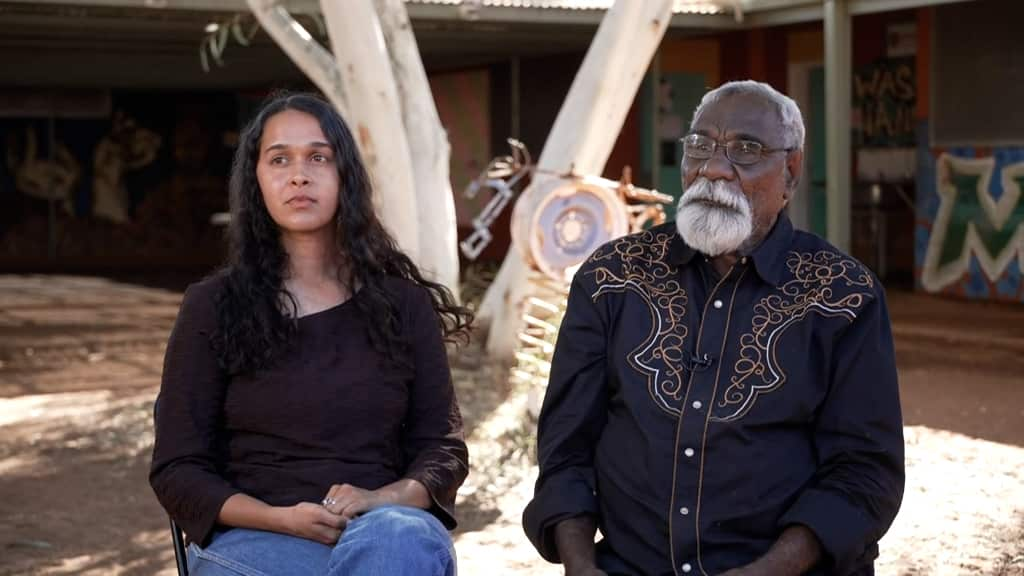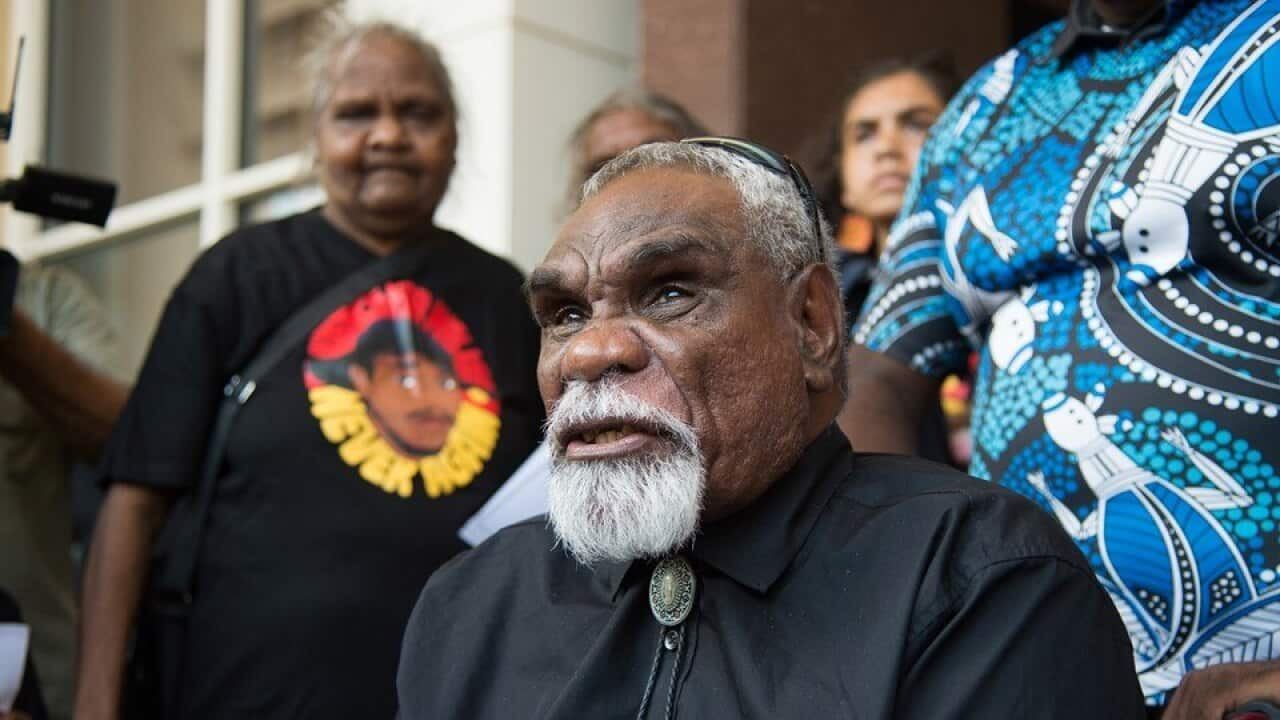Warning: this article includes distressing and violent content and the name of Aboriginal people who have passed.
Ned Jampijinpa Hargraves, senior Warlpiri Elder from Yuendumu, has called on the Northern Territory police for a ceasefire.
On Monday Coroner Elisabeth Armitage released her long-awaited report into the death of Kumanjayi Walker.
Kumanjayi Walker, a 19-year-old Walpiri-Luritja man was shot three times and killed by then NT police constable Zachary Rolfe during an attempted arrest in Yuendumu on November 9, 2019.
Following a six-week trial in 2022, an NT Supreme Court jury found Mr Rolfe acted in self-defence and in line with his police training, and acquitted him of all charges.
Ms Armitage made 32 recommendations, including that NT Police strengthen their anti-racism strategy and make it public.
In her report, Ms Armitage said she had found Mr Rolfe was racist and she could not exclude the possibility his attitudes played an integral part in the 19-year-old's death.

Speaking the day after the coroner released her report, Uncle Ned said the Warlpiri people of Yuendumu need the truth to be found and told.
"We need to let the world know what has been happening to us," he said.
"The coroner talked about the racists in the Northern Territory today – she has told the truth.
"In future when we work with the police, it needs to be two ways of working and understanding.
"The First Nations, Indigenous people, we have the first solution and we need to take back our rights, our rights to run the community and to have peace."
Broken hearts
Samara Fernandez-Brown, Kumanjayi Walker's cousin, said the coronial inquest, which began in September 2022 and experienced several delays, had been a huge journey for the family.
"We've heard things throughout the inquest that have broken our hearts but, when we heard the coroner say that there was structural and entrenched racism in the NT police, we felt validated as a family, because to us, we felt like racism killed Kumanjayi," she said.
Ms Fernandez-Brown said she was disappointed that the recommendations about police accountability weren't stronger.
"We heard countless evidence about how the police have been racist, how they have been violent, and how they use too much force when it comes to our people," she said.
"So that was disappointing but, in saying that, hearing some of the things around the coroner finding that Kumanjayi didn't reach for Rolfe's gun was really important to us as a family, because we felt like that was a lie.
"We also heard that the coroner said that the entry into my grandmother and Kumanjayi's grandmother's house was unlawful – they did not get permission to enter."
The North Australian Aboriginal Justice Agency (NAAJA) welcomed the Coroner’s recommendations to reform the NT police complaints system, but said they were disappointed the Coroner did not recommend an independent oversight body.
"We stand with Kumanjayi Walker's family, community, and Yuendumu in their fight for truth and justice, and support the family's calls for police accountability," NAAJA chairperson Theresa Roe said.
"Now is the time to stop, talk and focus on a better way forward."
Aboriginal and Torres Strait Islander Social Justice Commissioner Katie Kiss says the coronial findings are a painful, but powerful, reminder of the urgent need for sweeping reform across police and justice systems to fully address ongoing injustices against First Peoples.
“This has been a slow, painful six years towards something that will never deliver complete justice for Kumanjayi Walker or the Yuendumu community,” Commissioner Kiss said.
“My heart continues to break for them, and all First Peoples families suffering over the national shame which is Aboriginal and Torres Strait Islander deaths in custody.
"As the coroner said emphatically, this death should not have happened."
Commissioner Kiss said Kumanjayi was a loving and much-loved young man, who was failed by the justice system even before the night of his death.
"His history of trauma and intellectual disability were not adequately addressed during his time in detention," she said.
“Racism is running rife in our institutions, and it lies at the heart of these shocking injustices, but today marks a powerful moment.
"These findings, delivered on the lands of Yuendumu people – Kumanjayi Walker’s people – not only outline who, and what, is to blame, but offer a clear pathway for reform.
“Like the coroner, I sincerely hope these findings will help prevent further tragedies.”
Since the start of 2025, there have been 13 Aboriginal deaths in custody.
This includes the May death of another young Walpiri man, Kumanjayi White, who passed after being restrained by police at an Alice Springs supermarket and was Uncle Ned's grandson.
"Another one gets killed. This is my family, so I've got a I've got to bear with that, so it's not good," Uncle Ned said.
"I do have a message ... cease fire."
The Warlpiri community and Justice For Walker campaign have been calling for police to stop carrying guns when they go to Yuendumu, with Uncle Ned saying he was disappointed that Acting NT Police Commissioner Martin Dole had not honoured his word and stayed in community for a discussion after the coroner delivered her findings.
Ms Fernandez-Brown said she drew hope from the coroner's recommendation to return control back to the Yuendumu community, which had been taken as part of the NT Intervention in 2007.
"I wouldn't necessarily hold my breath and hope for the Northern Territory police to change," she said.
"I'd like to see structural change, but perhaps moving away from police and moving around community based solutions and accountability and structures that are safe.
"At the moment, the Northern Territory is inherently unsafe for Aboriginal and Torres Strait Islander people.
"Asking the Northern Territory police to become safe is unsustainable and it's a band aid solution, so I'd like to see a structure that replaces that altogether."

